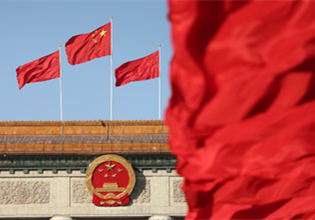Advantages

A relatively short distance from the cities of Beijing and Tianjin, Inner Mongolia stretches across northern China, bordering eight provinces. [Photo provided to chinadaily.com.cn]
Inner Mongolia stretches across northern China, bordering eight provinces. It is an important area for the Bohai Economic Rim (on the Bohai Gulf of the Yellow Sea) and China's northeast Economic Zone, as well as a fundamental economic link between northern China and the vast northwestern part of the country. The government of the autonomous region is developing economic belts along the Yellow River, and major traffic arteries and growth in the region is expected to have a major impact on both the Bohai Economic Rim and areas along the Yellow River.
One key State development zone is the triangular Huhhot-Baotou-Ordos area, which covers 114,000 square kilometers.
The northern border of Inner Mongolia runs for 4,221 km along Russia and Mongolia, and the city of Manzhouli, bordering Russia, is a key State experimental zone for economic development and opening up. In addition to Manzhouli, Erenhot and 17 other border ports in Hohhot, Hulunbuir, and other cities are of key interest.
Six of these ports – Manzhouli (railway), Manzhouli (road), Heishantou (waterway), Shiwei (waterway), Erka (road), and Hulieyetu (waterway) – provide direct links with Russia, while 10 ports - Erenhot (railway), Erenhot (road), Ceke (road), Ganqimaodu (road), Zhuengadabuqi (road), Arihashate (road), Mandula (road), Ebuduge (waterway), Aershan (road), and Bagemaodu (road) - are direct links with Mongolia.
The region also has three international airports - Huhhot, Hailar, and Manzhouli - which, when combined with its border ports, resources, and markets, make Inner Mongolia a unique, advantageous site for such industries as international logistics, trade, the import-export business and border tourism. It can also provide China's interior with favorable conditions for further opening up.



 Print
Print Mail
Mail





